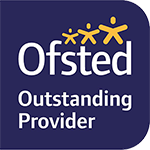By Joe Lepper
Councils are failing to identify and support child sexual exploitation (CSE) victims due to a lack of investment in youth counselling services, a study into a government-backed initiative has claimed.

An evaluation of a two-year youth counselling initiative run by Youth Access found that the 743 young people who used the services across three locations – Hackney in London, Hampshire, and Leeds – were experiencing a range of serious issues including CSE.
The most common reasons young people sought help were found to be for emotional abuse and sexual exploitation, followed by neglect, sexual abuse, domestic violence, and physical abuse.
But despite the seriousness of the problems, the study found that fewer than one in four of the young people (23 per cent) were previously known to social workers.
Barbara Rayment, director of Youth Access, said the study shows that councils are not doing enough to support older young people.
“The child protection system is failing to protect older teenagers,” she said. “Youth Information, Advice and Counselling Services (YIACS) are seen by many vulnerable young people as trustworthy and accessible sources of support. Importantly, they offer open access non-stigmatising drop-in services to which young people can self-refer.
“They can also offer longer-term and more in-depth interventions and broker access to statutory safeguarding services when needed.”
Rayment has called on councils to boost their funding of local YIACS as an effective, non-stigmatising way of better identifying older teenagers in need of protection and support.
Youth Access advice services development manager James Kenrick says in all three areas the service was run, CSE victims not known to local child protection teams were identified and helped. He said: “CSE was definitely one of the big issues in our findings. The evaluation shows that all areas involved increased the numbers of people at risk of CSE that they were engaging with. In particular they were able to target young male victims, who are often ignored by other services. We also found those with disabilities at risk of CSE.
The majority of those that came to the services were female but it was interesting that the services were also able to identify other specific groups.”
Kenrick added that without early identification offered by YIACS, vulnerable young people may not receive any support at all and be left at even greater risk of harm or exploitation.
A 2013 report by Youth Access and the Young People’s Health Partnership revealed the extent to which councils were cutting funding for charity-run YIACS.
This showed that the proportion receiving funding from their council had fallen from 90 per cent to 78 per cent between 2011 and 2013.
Helping to identify CSE victims was a key aim the Youth Access project – called Right 2B Safe project – which was funded through a £784,000 Department for Education grant.


